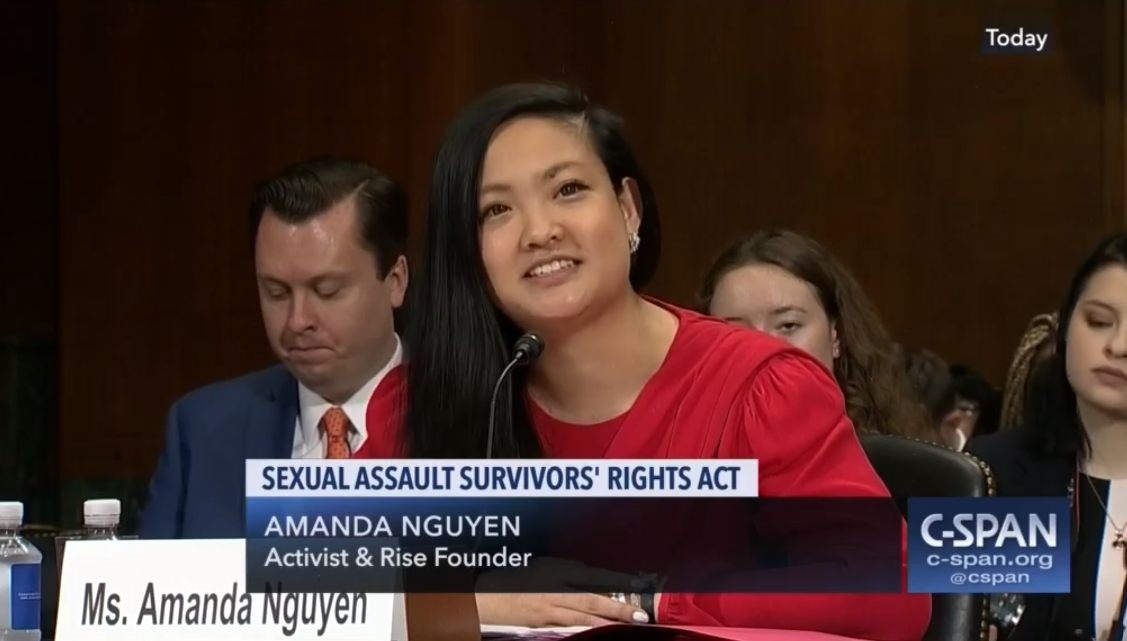KCSDV’s Spring 2020 Newsletter
- May 21, 2020
- Posted by: Lucca Wang
- Categories: 2020, All News & Blog Posts, Newsletters
In this newsletter:
- COVID-19 Address
- May is Asian Pacific American Heritage Month
- Advocacy Day 2020
- KCSDV’s Training Within KCSDV’s Strategic Framework
- KCSDV’s Child Welfare Project
- Sexual Assault Awareness
- Sexual Assault Awareness Month at MOCSA in Kansas City: One Story Can Start a Movement
- Yes, This Room. Sexual Assault Public Awareness Campaign
- KCSDV’s Statewide SANE-SART Project
- Glad You Asked: What is a Sexual Assault Exam, and Where Can I Have One Done?
- Resources
COVID-19 Address
Dear Community Members,
We know victims and survivors face tremendous barriers in several different ways. This pandemic adds additional barriers. It is important for people to know that if you are experiencing abuse, that there is help out there for you. While public officials advise staying home (and we agree if you are able and safe at home), you never have to stay in a dangerous or unsafe situation. Staying home does not mean staying in an unsafe home.
The 26 direct service providers for victims and survivors of sexual and domestic violence and their children are still open, and victim services are still available. Please visit the KCSDV website to find the advocacy organization nearest to you – either for help or to lend your support and help: https://www.kcsdv.org/find-help/in-kansas/dv-sa-services-map/. Any victim can call the Kansas Crisis Hotline at 888-363-2287 anytime 24 hours a day, 7 days a week, 365 days of the year and be connected to a trained Victim Advocate. It is at no cost to the victim (free), always voluntary, and confidential.
Although in general we are all at varying degrees practicing physical distancing, we are and can be still socially connected. We encourage everyone, especially victims and survivors, to remain connected or be connected to those you trust and with whom you have mutual respect.
We remain committed to our mission of preventing and eliminating sexual and domestic violence, which includes dating violence and stalking. We are still working for you and our communities. We appreciate our partners and our coalition member programs that are located in cities and communities all across the state that are also still working, still open, still available – sometimes in new ways.
We know this is a difficult time for everyone. We are worried about our colleagues, our families, our loved ones, those on the front lines, those who are infected, and those who are most at risk. We are grieving lives lost – not just to COVID-19 but also of those whose funerals we were not able to attend. This pandemic has presented us all with so many challenges and changes, but we are in this together.
We acknowledge too that this might be even more challenging and difficult for those that we as a society have put more at risk and are thus more vulnerable to not being able to stay home, protect themselves and their families, and more. During this time, we would like to honor space for acknowledging privilege as well.
Thank you to our staff, our partners, and all first responders, including medical professionals, nurses, and victim advocates for your service during this sad and unprecedented time. Like you, each of us individually at KCSDV is experiencing loneliness, sadness, grief, anxiety, hopefulness, anticipation, fear, helplessness, hopelessness, love, community support, differences in our daily lives – with forced flexibility, uncertainty, zero planning, caution, and sometimes additional hats called “essential worker,” “non-essential worker,” “teacher,” “food and grocery runner,” “news anchor,” “napper,” and “Netflix binger.”
We wish everyone peace, safety, and health. We are thinking of you!
Please feel free to connect:
Facebook | Twitter | Instagram | LinkedIn | Youtube
Take Good Care,
Joyce Grover, KCSDV Executive Director, and the Entire KCSDV Team
May is Asian Pacific American Heritage Month
May is Asian Pacific American Heritage Month. Asian Pacific American Heritage Month honors and celebrates the diverse and rich cultures, identities, histories, and experiences of people who are Asian American and Pacific Islander American. Additionally, this month stands as a time to pay homage to the generations of Asian Americans and Pacific Islander Americans who have enriched America’s history and its future. KCSDV takes this opportunity to recognize leaders in the movement to end sexual and domestic violence.
Below are just a few of the Asian American and Pacific Islander American leaders from the movement to end sexual and domestic violence:
-
- Amanda Nguyen: Nguyen is the CEO and founder of Rise, a non-governmental civil rights organization. She was a 2019 Nobel Peace Prize Nominee for her work on the Sexual Assault Survivors Bill of Rights. In 2016, the Sexual Assault Survivors Bill of Rights was signed into law. For more information about Amanda Nguyen and the Sexual Assault Survivors’ Bill of Rights, visit Rise’s website at https://www.risenow.us/.
- Sujata Warrier: In 2008, Dr. Warrier authored “‘It’s In Their Culture’: Fairness and Cultural Consideration in Domestic Violence.” Currently, Dr. Warrier is the Training and Technical Assistance Director at the Battered Women’s Justice Project, where she provides training on policy issues concerning immigrant women, culture, and civil justice. For more information about Dr. Sujata Warrier and her work, visit https://www.dawnww.org/staff-member/dr-sujata-warrier/.
- Mazie Hirono: Hirono is a U.S. Hawaii Senator. She was born in Japan and is the first Asian American woman elected to the U.S. Senate. Senator Hirono, elected to the Senate in 2013, has worked for survivor rights and protections during her tenure. Visit her Senate website at https://www.hirono.senate.gov/ for more information.
While KCSDV honors Asian Americans and Pacific Islander Americans during this awareness month, we also recognize the impact sexual and domestic violence have on these communities. 21 – 55% of Asian women in the U.S. report experiencing intimate physical and/or sexual violence during their lifetime. Learn more and find ethnic-specific fact sheets related to domestic violence, sexual violence, and human trafficking on the Asian Pacific Institute on Gender-Based Violence’s (API-GBV) website at https://www.api-gbv.org/resources/dvfactsheet-nativehawaiian/.
Advocacy Day 2020
Thank you to everyone who attended KCSDV’s 17th Annual Advocacy Day in the Kansas Statehouse and Capitol on February 12, 2020. It feels like such a long time ago now… However, we wanted to follow up and give you a recap of how the event went:
The annual event aims to increase the public’s awareness and knowledge of sexual and domestic violence and victim advocacy services available and provided in Kansas. About 3,000 supporters, partners, and members of the public were invited to attend. 27 KCSDV staff members, 3 volunteers, and many partners made the event possible. Blue Cross and Blue Shield of Kansas sponsored the Silent Witness event portion of the day.
Despite the unexpected snowstorm that brought several inches of snow to many different parts of the state, including Topeka, 17 of the 26 coalition member programs were able to travel to the capitol. The coalition member programs tabled on the first floor of the rotunda. Throughout the day, programs spent the day increasing awareness about sexual and domestic violence and the victim services.
Hundreds of lawmakers, supporters, and visitors attended the event and passed through the capitol space, having quality discussions and learning about the importance of sexual and domestic violence victim services. Some individuals and groups gathered for photos at the first ever KCSDV Advocacy Day photo booth. See 98 photos from the event on KCSDV’s Facebook page.
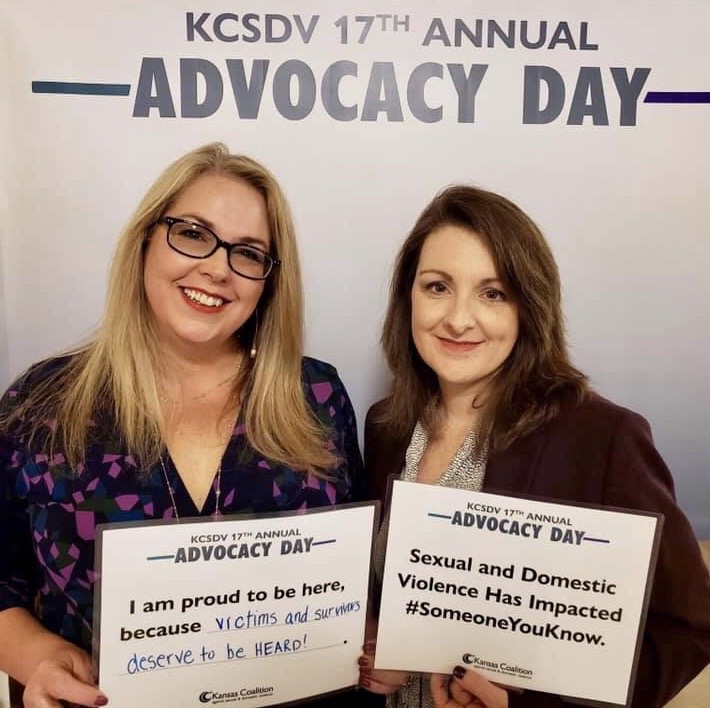
A Silent Witness Display Exhibition on the second floor of the rotunda opened in the morning and showed through the day. The installation consisted of 57 unique Silent Witness Displays, all lining the outside of the rotunda for an immersive and powerful experience. The silhouettes shown on the Silent Witness Displays symbolize Kansas women killed through sexual and domestic violence. The stories on the displays are real, true stories of Kansas women killed by perpetrators of sexual and domestic violence. One story can be read on each display. By showing these Silent Witness Displays, we honor these women, their lives, and their stories – as well as all other victims and survivors of sexual and domestic violence.
These Silent Witnesses are people from cities and communities across the state. Friends, family, and sometimes former advocates attend to honor and mourn the loss of their acquaintances, friends, and loved ones. It is important to remember that each person’s story shown on the front of their display is just a tiny portion of their whole life story. Their death and the violence inflicted up on them does not define them – but it is important that we recognize them.
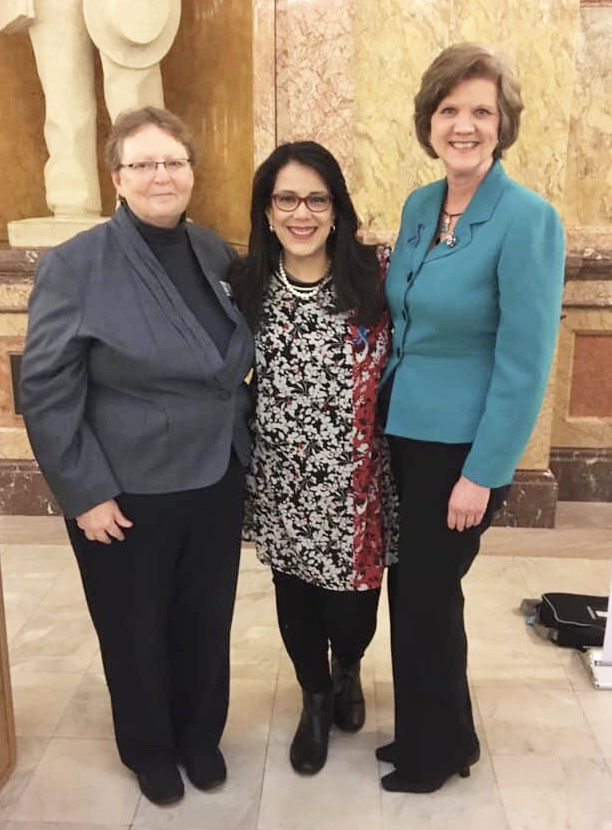
The speaking event, the Silent Witness Display Ceremony and Program, took place on the second floor of the rotunda and was sponsored by Blue Cross Blue Shield of Kansas. Nearly 200 people came to the ceremony and program to honor these Kansas women and all victims and hear our three speakers on the subject:
-
- KCSDV Executive Director Joyce Grover welcomed the crowd. She introduced the Silent Witnesses and the day’s event. She spoke about KCSDV’s part in the collaborative Sexual Assault Kit Initiative Project and the importance of awareness of the facts and statistics as they relate to the significance and pertinence of sexual and domestic violence.
- Blue Cross Blue Shield of Kansas (BCBSKS) Manager of Community Relations Marlou Wegener spoke about BCBSKS’ support of sexual and domestic violence victim services work and the importance of it.
- And finally, the sitting and standing audience welcomed current City of Topeka Mayor Michelle De La Isla who gave a moving speech about the abuse she herself experienced. She challenged those attending to “change the narrative,” so that we all can offer the help to victims without any victim blaming and place accountability where it belongs, on the abuser.
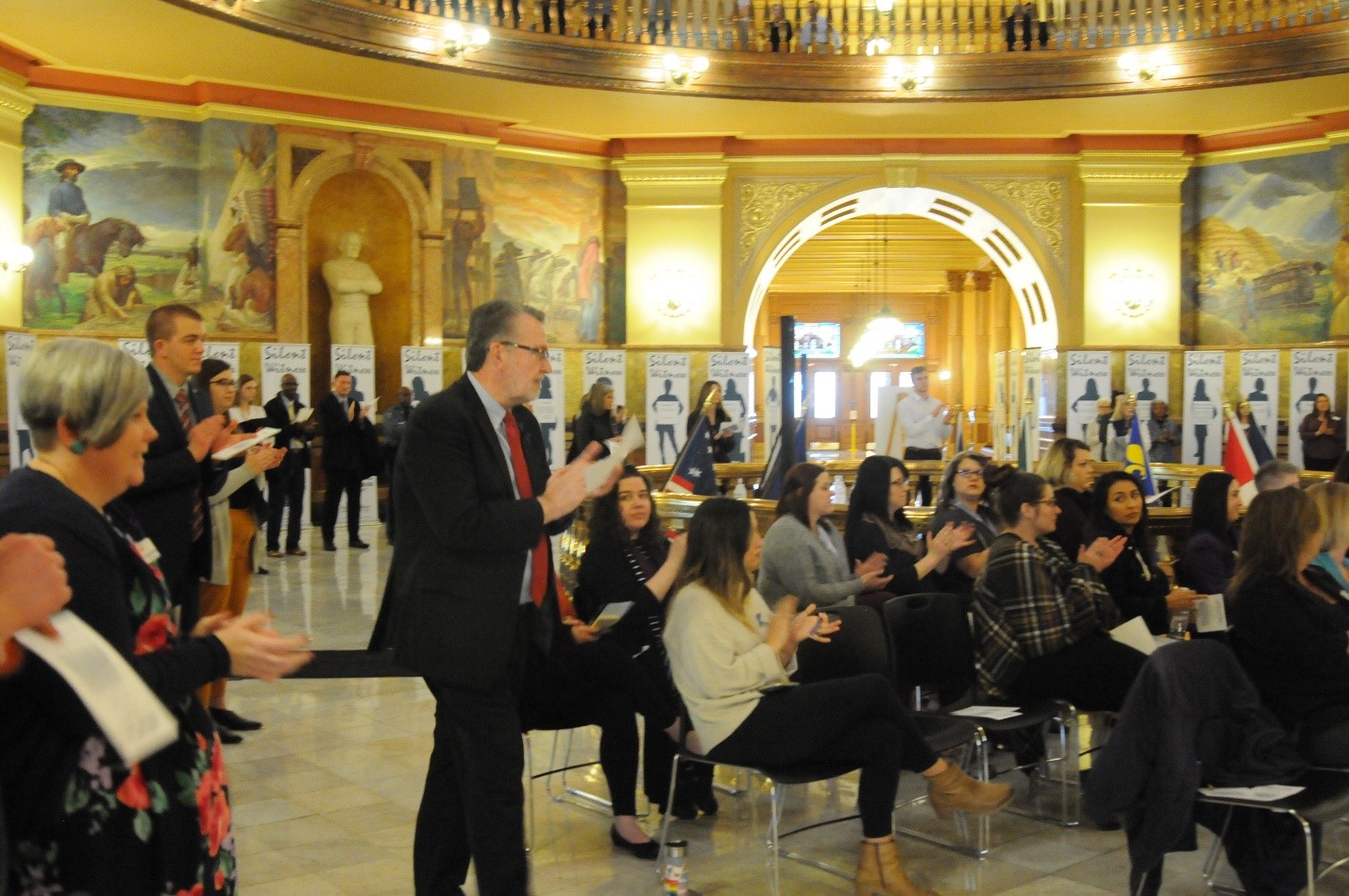
Statistics prove that sexual and domestic violence impacts “Someone You Know,” the theme of the day.
- In 2019, nearly 70,000 victims of sexual and domestic violence and stalking received victim services in Kansas.
- Domestic violence: 1 in 4 women and 1 in 7 men have been a victim of severe physical violence by an intimate partner.
- Sexual Violence: 1 in 3 women and 1 in 6 men experienced some form of contact sexual violence in their lifetime.
- Stalking: 1 in 4 women and 1 in 13 men reported being a victim of stalking in their lifetime.
Thank you to everyone who contributed, attended, and supported.
KCSDV’s Training Within KCSDV’s Strategic Framework
One of KCSDV’s strategic framework goals is to educate about the nature of sexual and domestic violence, the effects of these public health problems, and best practice responses. Several of KCSDV’s around 100 trainings in the last year featured national subject matter experts. Outcomes and successes from a few of these events are highlighted below.
Why They Fight the Facts and What to Do About It: Learning How to Respond to Victim Blaming Arguments and Folks Who Just Don’t Get It
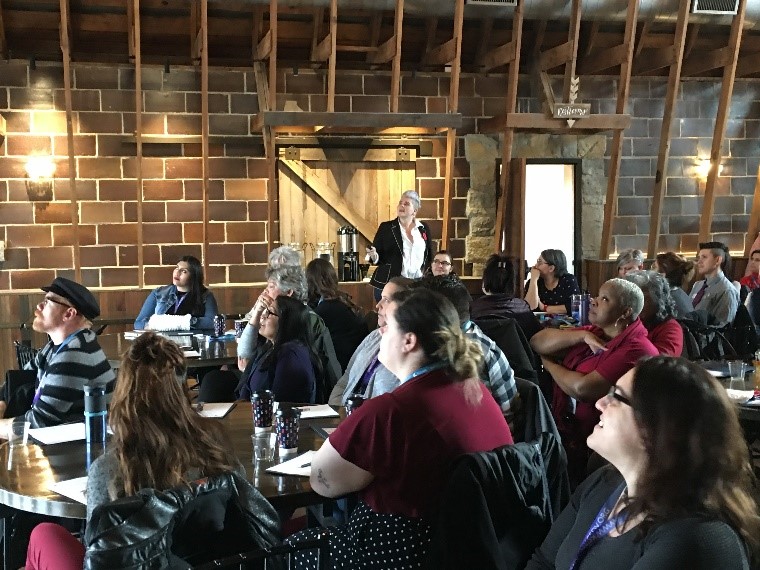
On February 11, 2020, over 75 sexual and domestic violence advocates gathered in Topeka from across the state to attend the training, “Why They Fight the Facts and What to Do About It: Learning How to Respond to Victim Blaming Arguments and Folks Who Just Don’t Get It.” This training, sponsored by Blue Cross and Blue Shield of Kansas, was presented by national expert Heather Imrie, M.Ed., Director of Program Development and Efficacy at Catharsis Productions. The mission of Catharsis Productions is to change the world by producing innovative, accessible, and research-supported programming that challenges oppressive attitudes and shifts behavior.
Open and honest communication is key to effective systems advocacy, and learning how to communicate about sensitive topics without alienating people from the conversation is critical. Myths and misinformation about sexual and domestic violence can make the dialogue even more challenging.
Imrie provided participants with information on barriers to change, best practices for changing harmful attitudes, and how to have those hard conversations in a way that creates positive change for victims, survivors, and communities. As a result of this event, survey feedback from participants indicated that 99% of participants increased their knowledge and 100% increased their skills.
Human-Centric, Trauma-Informed Care and Response: A Paradigm Shift
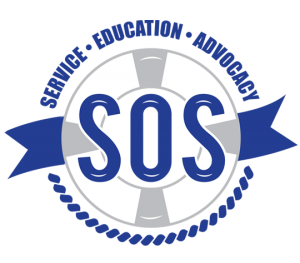
On December 18, 2019, SOS, Inc., co-sponsored by KCSDV, held a training in Emporia with national experts Myra and Russell Strand. Myra Strand began trauma work in 1995 and is now a leading trainer of professionals nationwide. Russell Strand began working in law enforcement in 1975 and is a retired senior special agent. He is committed to creating a world in which every victim can be confident in reporting their experience and has a genuine voice that is truly heard.
The training, “Human-Centric, Trauma-Informed Care and Response: A Paradigm Shift,” provided participants with information and tools on trauma and applying a trauma-informed approach to services.
The event was attended by over 90 multidisciplinary professionals, including law enforcement, victim advocate, and other human services professionals.
As a result of this training, 98% of participants increased their knowledge and 95% increased their skills per survey feedback from participants.
3rd Biennial Kansas Conference for Ending Sexual and Domestic Violence: Engaging in Equity, Accountability, and Justice
On July 30 – 31, 2019, KCSDV held its “3rd Biennial Kansas Conference for Ending Sexual and Domestic Violence: Engaging in Equity, Accountability, and Justice” in Lawrence. The conference centered on racial and economic equity in the work to end sexual and domestic violence.
Featured presenters included national experts Zoë Flowers and Sumayya Coleman from the Women of Color Network, Inc. and Lisalyn Jacobs and Sara Wee from the Center for Survivor Agency and Justice.
The featured presenters are partners on the Racial and Economic Equity for Survivors Project (REEP) and contributing authors of the report “Showing Up: How We See, Speak, and Disrupt Racial Inequity Facing Survivors of Domestic and Sexual Violence.”
The presenters lead a collective session on crafting commitments to racial and economic equity work in the effort to end sexual and domestic violence. Local and national experts presented over 15 breakout learning sessions. Over 150 people from across Kansas and 12 different states attended.
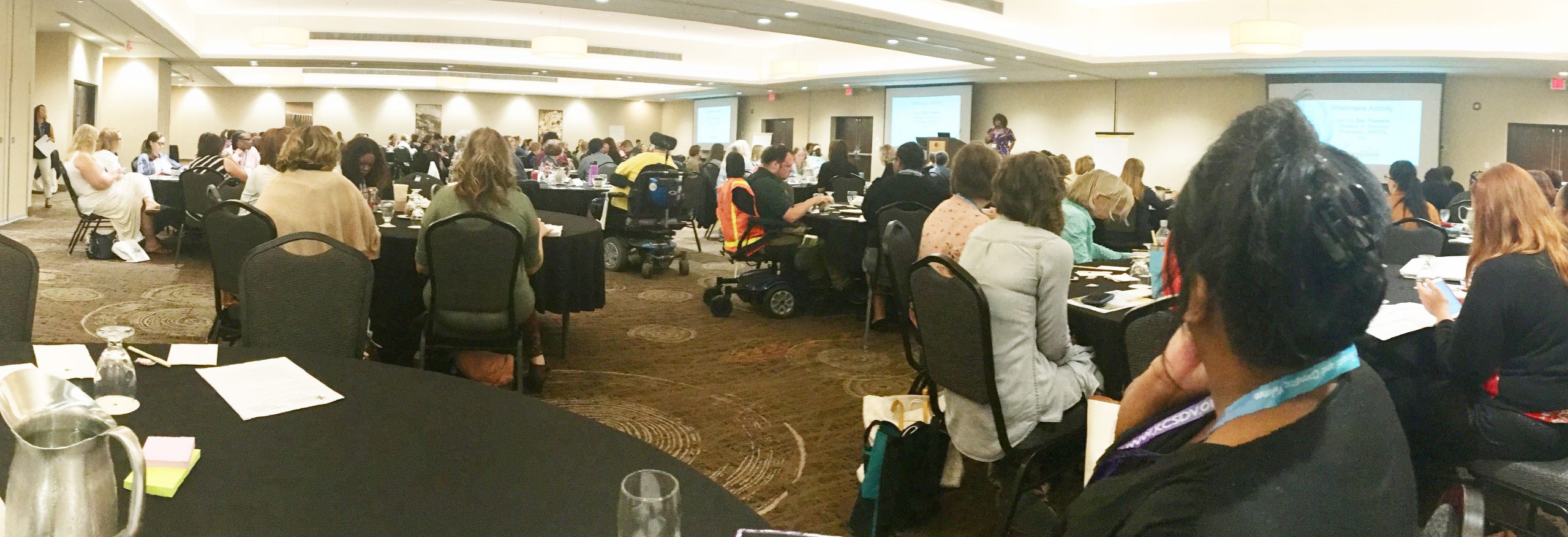
As a result of the conference, 98% of participants increased knowledge and 100% increased their skills as indicated by survey feedback from participants.
Learn more about KCSDV’s strategic framework.
KCSDV’s Child Welfare Project
In 2016, KCSDV was one of 12 sites nationally to be awarded the U.S. Department of Health and Human Services Specialized Services for Abused Parents and Their Children Grant. The grant is awarded to new projects for innovative work.
KCSDV’s Empowered Families Kansas project focuses on three strategies to build evidence-based practices that improve outcomes for children and youth exposed to domestic violence and their non-abusing parents or caregivers. One of these strategies is increasing child welfare.
See KCSDV’s newly published report on child welfare.
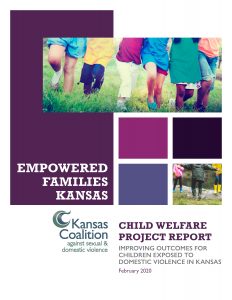
Sexual Assault Awareness
The month of April is National Sexual Assault Awareness Month (SAAM). During the past month, we were energized to see awareness of sexual violence and assault being elevated across Kansas, the U.S., and the world – even amid the pandemic.
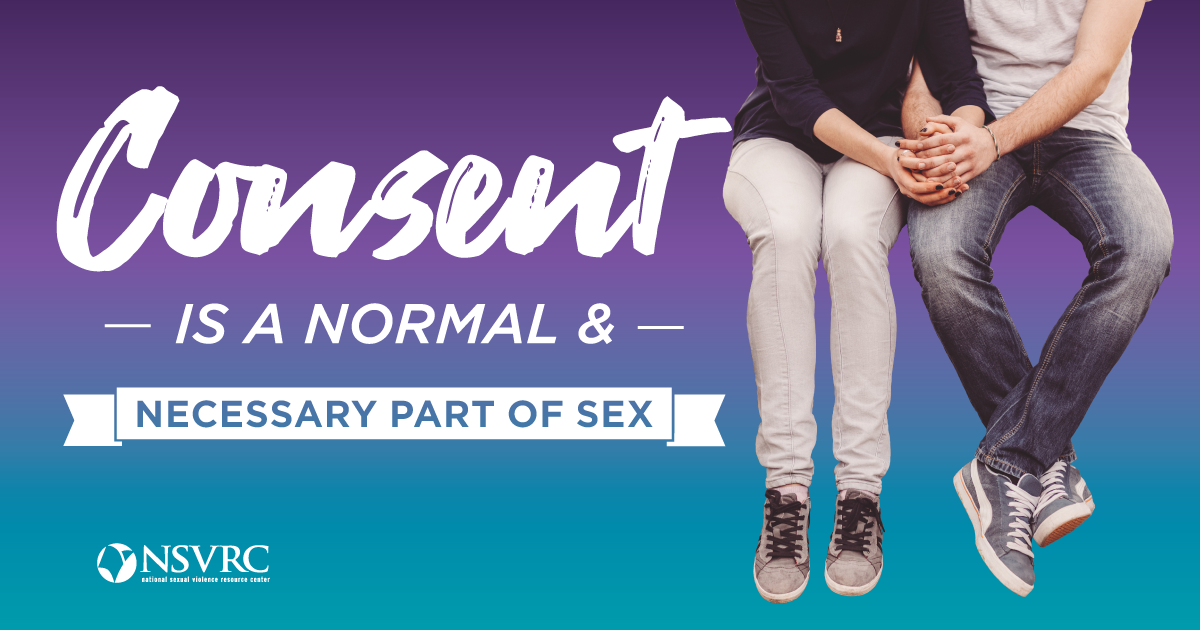
This year, SAAM celebrated its 19th anniversary with the theme “I Ask.” Consent is a clear, concrete example of what we can each individually do and encourage others to do. Consent all the time, every time, and enthusiastically without coercion and pressure throughout does not allow room for sexual assault. One of this year’s main campaign messages is that asking for consent is normal and necessary. The goal of the campaign is to empower all of us to put consent into practice.
To combat victim blaming, we would like to cover some basics, statistics, and facts: Sexual assault can happen to anyone – regardless of gender, age, race, sexual orientation, socioeconomic status, or ability. In the U.S., about 1 in 3 women and 1 in 6 men have experienced sexual assault, and 1 in 5 women and 1 in 71 men have experienced rape. In Kansas, victim advocacy programs regularly serve at least 4,500 victims of sexual assault each year. This is the amount of Kansans who indicated sexual violence was their primary victimization upon seeking help.
In 2018, one incident of rape was reported to Kansas law enforcement every 6 hours, 29 minutes, and 37 seconds. Although this frequency is way too high, sexual assault is still among the most underreported crimes for a variety of reasons – most of which do not just put the responsibility on victims to report. Victim-blaming and rape culture are to blame. We can change our response to victims and survivors, give victims and survivors the space and agency to speak up about the violence inflicted upon them, and implement victim-centered and trauma-informed policies that create safer environments and better help our communities and those in need.
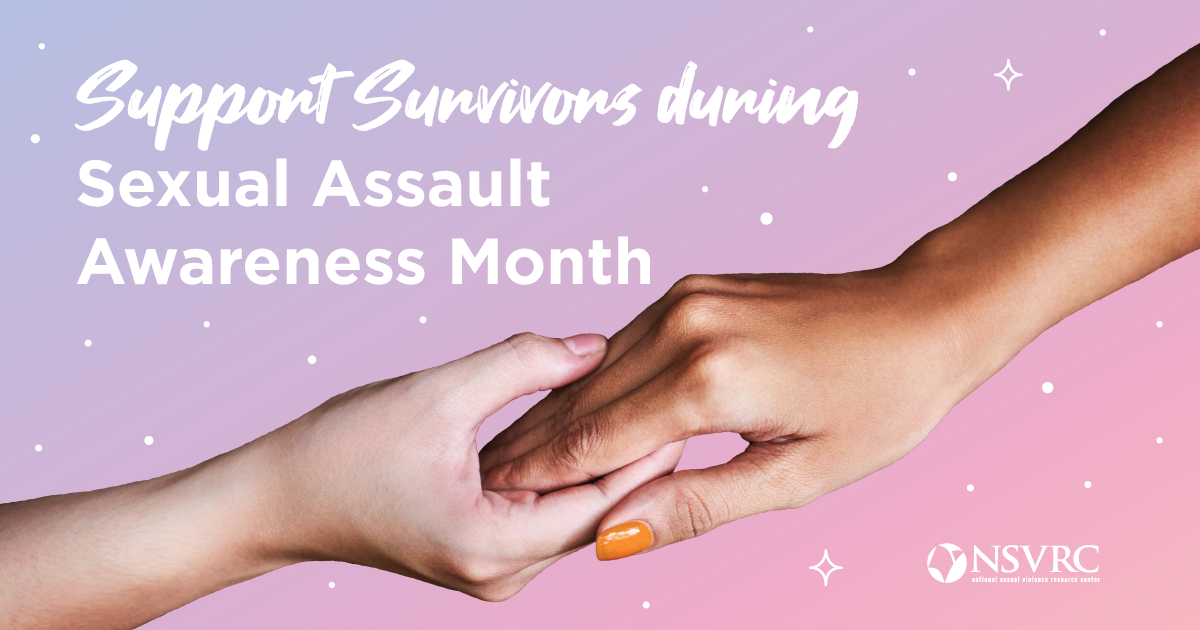
Your Action Matters
Your leadership and action are more important than you think. The impact of participating in community events, sexual assault awareness activities and education, and exploration and implementation of policies prioritizes your community’s well-being and shows support for victims and survivors. You might be surprised at how these actions provide meaningful insight and significantly elevate information about resources and services.
Learn about sexual violence. Access KCSDV information and brochures on sexual violence and assault:
- If You Have Been Sexually Assaulted
- Know Your Rights: A Guide for Sexual Assault Survivors
- Sexual Assault Forensic Exam
- Sexual Violence Against Older Adults
- If You Are Older and Have Been the Victim of Sexual Violence
- How to Support a Victim of Sexual Assault
There are brochures for print that you are welcome to use at home, at work, and at your organization, agency, or company at https://www.kcsdv.org/learn-more/resources/brochures/general-info/.
Sexual Assault Awareness Month at MOCSA in Kansas City: One Story Can Start a Movement
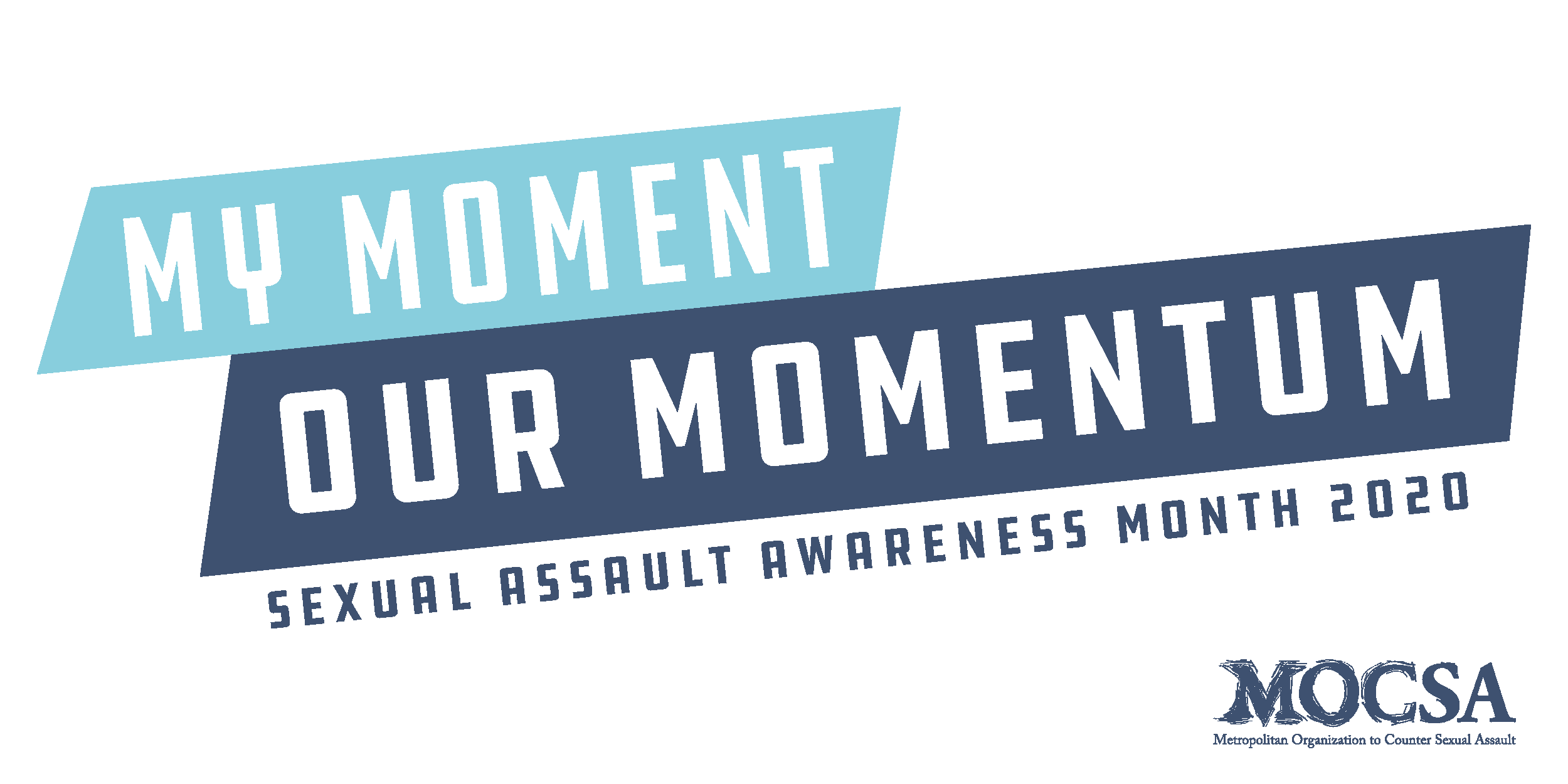
Every year during Sexual Assault Awareness Month (SAAM) in April, the Metropolitan Organization to Counter Sexual Assault (MOCSA) in Kansas City honors survivors, supporters, volunteers, service providers, and community advocates. MOCSA does this by recognizing their experiences, contributions, and efforts to end and prevent sexual assault and abuse. MOCSA’s mission is to improve the lives of those impacted by sexual abuse and assault and to prevent sexual violence in the Kansas City community. This year MOCSA’s theme for SAAM was “My moment. Our momentum.”
As part of Sexual Assault Awareness Month (SAAM), MOCSA launched the MOCSA StoryShare project to acknowledge the individual experiences inspiring growth and propelling the anti-violence movement. Storytellers shared personal moments in which they were moved to action, changed an idea or belief, or witnessed a cultural shift related to sexual violence. This project became a collection of stories from volunteers, clients, community members, students, staff, and others who have been inspired or impacted by MOCSA’s mission.
People can listen and read these stories on MOCSA’s website at https://www.mocsa.org/storyshare. Stories, with permission of the authors, were also shared by MOCSA via email and social media.
All of MOCSA’s public, in-person events for SAAM were cancelled due to public health precautions for COVID-19. MOCSA’s Annual Community Luncheon, which is usually held in May, was rescheduled and is now on Wednesday, October 14, 2020. Kristen M. Gibbons Feden will serve as the keynote speaker at the event. She is recognized from her role as the prosecutor for the trial and re-trial of Bill Cosby in Montgomery County, Pennsylvania. Details and tickets are available at https://www.mocsa.org/luncheon.
Yes, This Room. Sexual Assault Public Awareness Campaign
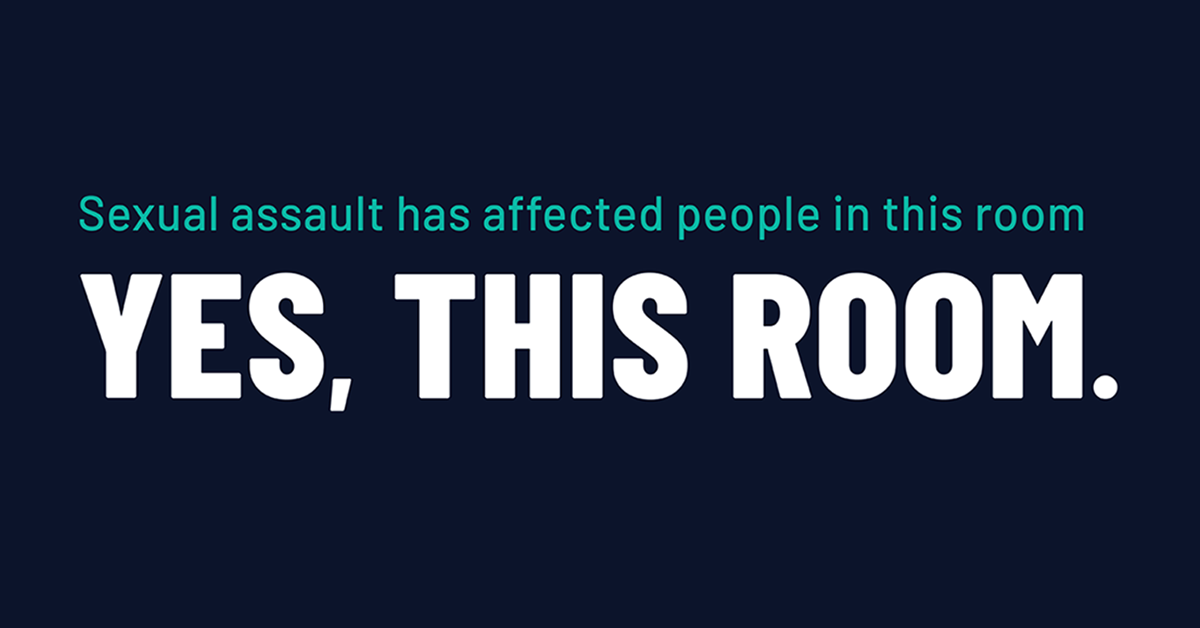
“Yes, This Room.” is a statewide public awareness campaign developed through the Kansas Sexual Assault Kit Initiative (SAKI) Project. The awareness campaign is a call to action for everyone to participate in increasing awareness about sexual assault, the findings of the project, and how we can prevent sexual assault. We might not need to tell you that yes, someone in this room (the room you are currently in,) is or has been impacted by sexual assault and violence.
You can help by reading on and then sharing this information.
In March 2017, the Kansas Bureau of Investigation identified over 2,200 previously unsubmitted sexual assault kits across the state. Via the 2,200 sexual assault kits identified as part of the project, 907 suspects were identified with trackable criminal history. 93% of these suspects had a history of other violent offenses, and 42% of these suspects specifically had a history of additional sex offenses.
If we truly want to end sexual assault, as a society we must take a stand and hold offenders accountable.
Sex offenders often target people they perceive as vulnerable, less powerful, or less credible. In most cases, the offender is known to the victim.
Research demonstrates that sex offenders impact public safety, and many are repeat offenders.
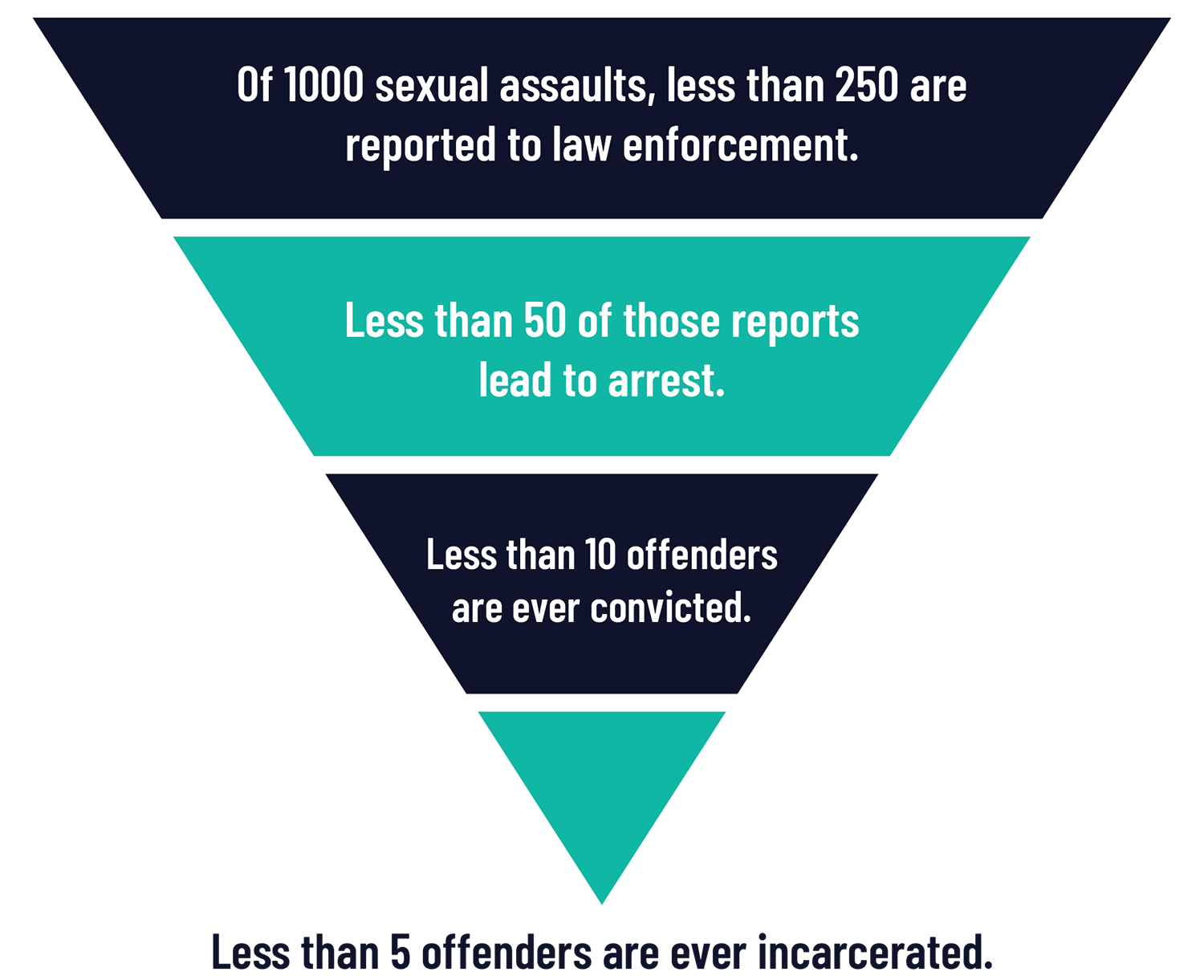
Of 1,000 sexual assaults, less than 250 are reported to law enforcement. Less than 50 of those lead to an arrest. Less than 10 result in a conviction. Less than 5 offenders are ever incarcerated.
Awareness of the realities of perpetrators and abusers and their violence combats the normalization of sexual violence and assault in our society. Our awareness and action can prevent sexual violence and assault before it occurs, before it can occur.
The “Yes, This Room.” campaign includes tools and resources to help you or your organization engage in conversations and create an impact. To get involved, visit http://yesthisroom.com and http://síestecuarto.com. You can download resources from the website, hang the posters in public spaces, and make information cards available within your organization. Share http://yesthisroom.com, and the Spanish version, http://síestecuarto.com, with your colleagues and friends.
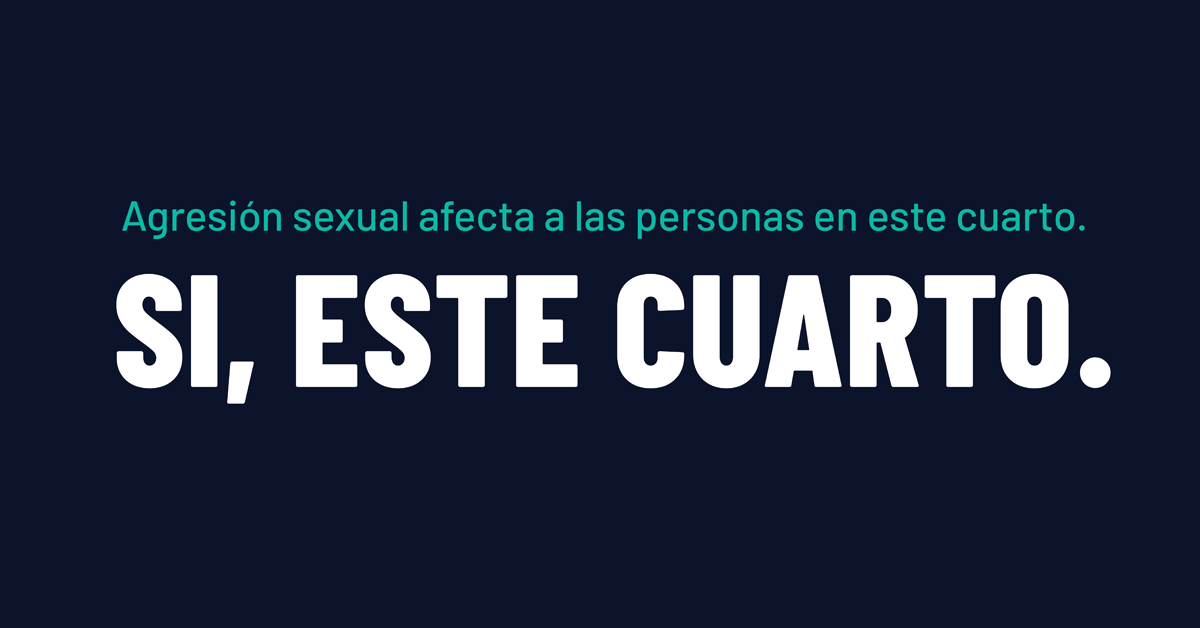
KCSDV’s Statewide SANE-SART Project
The goal of KCSDV’s Statewide SANE-SART Project is to improve trauma-informed and victim-centered medical and community system responses to sexual assault in Kansas. A “SANE” is a sexual assault nurse examiner. A “SART” is a sexual assault response team.
Main project objectives include:
- Provide training opportunities
- Increase access to resources in rural areas
- Improve the overall capacity of hospital emergency departments
- Provide expert advice (technical assistance) via email, phone, and in-person
KCSDV provides regular training opportunities for Kansas sexual assault nurse examiners and sexual assault response team members. The trainings include the 40-hour Adult/Adolescent SANE-SART Course and the 40-hour Pediatrics SANE Course. KCSDV also provides advanced training opportunities with national experts.
KCSDV makes sure to include rural areas in trainings. KCSDV project staff build relationships and partner with those located in rural areas. KCSDV strategically holds trainings in rural areas that might not otherwise have training opportunities. KCSDV project staff provide on-site technical assistance to Kansas communities.
KCSDV, Kansas SANEs, and other collaborative partners are striving to improve the overall capacity of hospital emergency departments statewide to serve victims and survivors of sexual assault. The goal of these efforts is to increase access to sexual assault exam services for victims and survivors in Kansas.
KCSDV also coordinates the Kansas SANE-SART list serve, which is an email database that any list serve member can utilized as a way to communicate with over 260 list serve members, who are SANE-SART professionals located across the state. KCSDV regularly distributes best practice information and upcoming training opportunities through a quarterly SANE newsletter and via the list serve.
KCSDV also publishes resources on sexual assault exams for both professionals and the general public.
Twenty-five hospitals in Kansas have SANE programs, some of which provide SANE services at multiple sites in the Kansas City Metro area. SANE services in Kansas are available at the designated locations on the map available at: https://www.kcsdv.org/find-help/in-kansas/sane/. Due to a lack of resources, many SANE programs are unable to provide services 24 hours a day, 7 days a week. However, any hospital emergency department in Kansas can provide emergency medical services or treatment.
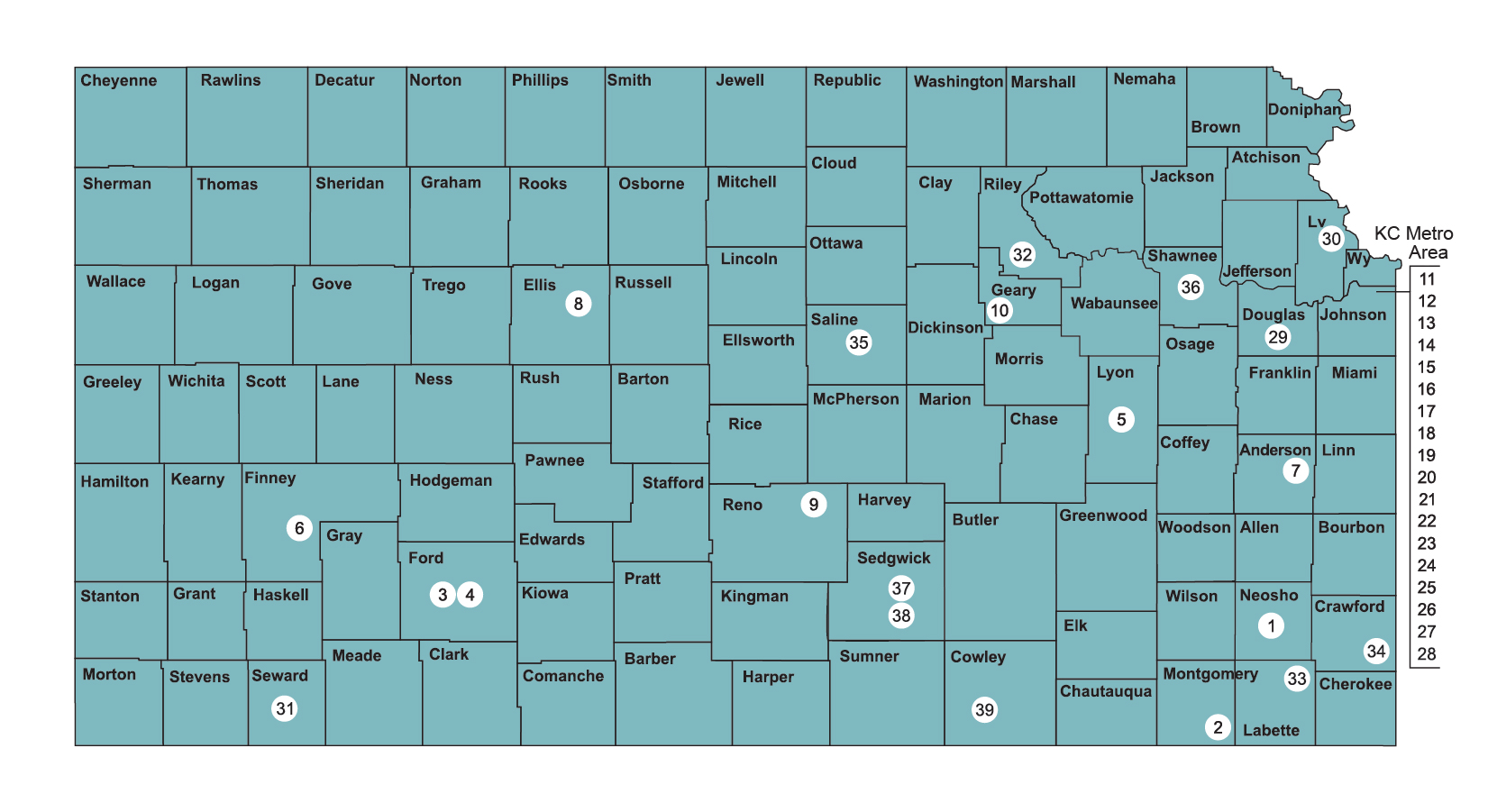
For more information about the KCSDV Statewide SANE-SART Project or to schedule a training for your hospital emergency department, please contact KCSDV.
Glad You Asked: What is a Sexual Assault Exam, and Where Can I Have One Done?

The Sexual Assault Medical Forensic Exam
A sexual assault medical forensic exam has two primary purposes: 1) to provide medical care and treatment for victims of sexual assault; and 2) to collect evidence related to the sexual assault. The exam is performed by a doctor, a specially trained physician’s assistant, or a specially trained registered nurse. Specially trained registered nurses may also be called Sexual Assault Nurse Examiners (SANEs) or Forensic Nurses.
Anyone who is or may be a victim of sexual assault has the right to request an exam. An adult victim does not have to report the sexual assault to law enforcement in order to receive the exam. In cases where the sexual assault is reported to law enforcement, the evidence collected during the exam is turned over to law enforcement and may be used to help with the criminal investigation and may be used in court. Medical professionals are required by law to report suspected abuse of children (a person under 18 years of age) and vulnerable adults (a person 18 years of age or older who is unable to protect their own interests) to law enforcement or the Kansas Department for Children and Families.
During the Exam
If possible, before an exam, a victim should not bathe, shower, brush their teeth, use mouthwash, urinate, defecate, douche, change clothes, eat, drink, or smoke. If they have already done any of these things, they should still get the exam.
The victim may have support persons of their choice present during the exam, including an advocate. The victim can agree to or say no to the entire exam or to any part of the exam. The medical professional will ask questions about the victim’s health and the sexual assault, will check the victim’s body from head to toe, and collect evidence such as clothing, body swabs, and documentation of injuries. Information provided by the victim will help the medical professional provide the best possible treatment of injuries and illnesses, medications to prevent infection or pregnancy, and collection of evidence.
Payment for the Exam
The collection of evidence related to the sexual assault is paid for by the county where the assault occurred. This expense should not be billed to the victim or the victim’s insurance company.
However, expenses related to medical care and treatment will likely be the responsibility of the victim. Any medical treatment of injuries, Sexual Transmitted Infections (STIs) testing, and pregnancy testing are likely considered medical care. Health insurance may be billed for these costs if insurance information is provided. If the sexual assault is reported to law enforcement, Crime Victims’ Compensation may cover some expenses related to medical care and treatment.
SANE Services
Services from a SANE are available in Kansas at the locations on the map available at https://www.kcsdv.org/find-help/in-kansas/sane/. Unfortunately, many of these locations on the map do not have adequate resources to provide SANE services 24 hours a day, 7 days a week. Additionally, not all SANEs are trained to examine children. However, any hospital emergency department in Kansas can provide medical care and treatment.
Advocate Response
Victims of sexual assault have the right to have a specially trained advocate who can provide support and help answer questions before, during, and after the exam. These services are offered 24 hours a day, seven days a week and are free and confidential. Visit the KCSDV website for the list of Kansas sexual and domestic violence service providers and contact information.
Resources
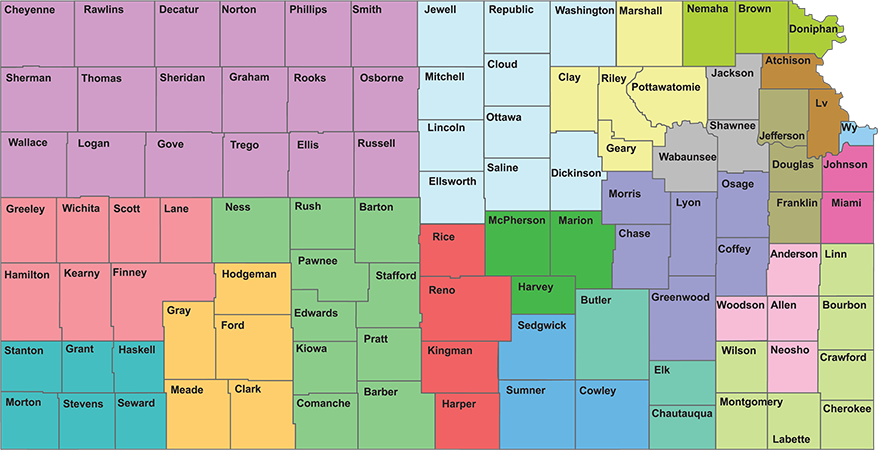
This project was supported by Grant No. 2019-MU-AX-0021 awarded by the Office on Violence Against Women, U.S. Department of Justice. The opinions, findings, conclusions, and recommendations expressed in this publication are those of the author(s) and do not necessarily reflect the views of the Department of Justice, Office on Violence Against Women.
KANSAS CRISIS HOTLINE: 888-END-ABUSE | 888-363-2287
Last Updated on May 22, 2020
